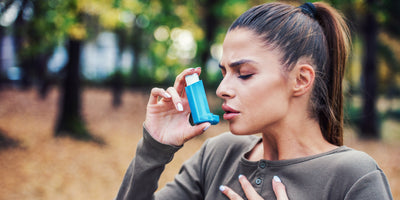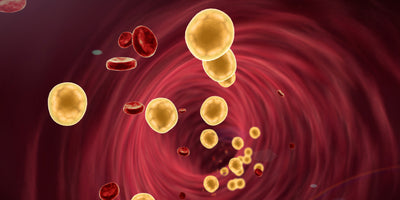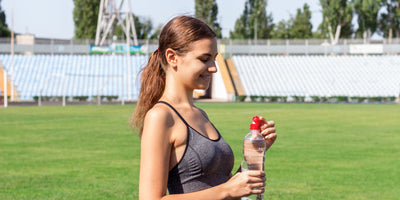
Maintaining Hydration Around Irregular Schedules
Staying Hydrated with a Hectic Schedule: Your Ultimate Guide
Hydration is the cornerstone of health, quietly underpinning every cellular function in our bodies. Yet, in the hustle of daily life—juggling work, family, and the unexpected—it's all too easy to let hydration fall by the wayside, especially for those tethered to irregular schedules. The consequences of dehydration are more than just thirst; they ripple out, affecting your mood, energy levels, and cognitive functions. This guide is dedicated to unraveling the complexities of maintaining hydration amidst the chaos of life, offering you science-backed insights and practical solutions to ensure water intake is a priority, not an afterthought.
The challenge of staying hydrated becomes even more daunting when traditional routines are out of reach. Whether you're a shift worker, a frequent traveler, or simply someone whose day-to-day schedule lacks consistency, finding ways to integrate hydration into your irregular lifestyle is crucial. This article not only shines a light on why hydration is essential but also navigates through innovative hacks, optimal beverage choices, and the significant role diet plays in keeping you hydrated. By the end, you'll be equipped with the knowledge and strategies to make hydration a seamless part of your life, no matter how unpredictable your days may seem.
Understanding Hydration and Your Body
The Science Behind Hydration and Its Effects on the Body
Water is the elixir of life, vital for every process in our body. From regulating body temperature to ensuring the smooth operation of our organs, hydration plays a pivotal role in our overall health and well-being. At a cellular level, water facilitates the transport of nutrients and oxygen, serving as the medium for all biochemical reactions. Moreover, adequate hydration is essential for joint lubrication, digestion, and waste elimination. However, the body's need for water varies based on factors such as age, weight, activity level, and environmental conditions, making it essential to understand and respond to its hydration cues.
Identifying signs of dehydration is critical, with symptoms ranging from the mild—such as increased thirst, dry mouth, and fatigue—to the severe, including dizziness, confusion, and rapid heartbeat. These indicators are your body's plea for hydration, often exacerbated by irregular schedules that disrupt normal drinking patterns. Recognising these signs early on enables proactive measures to rehydrate, preventing the cascade of negative effects dehydration can have on your mental and physical performance.
Identifying Signs of Dehydration
Dehydration occurs when your body loses more fluids than it takes in, leading to an imbalance that affects its ability to perform normal functions. Early signs of dehydration are often subtle, making them easy to overlook, especially during busy or irregular schedules. Symptoms include a noticeable decrease in urination, dark yellow urine, dry skin, tiredness, and irritability. As dehydration progresses, it may lead to more severe complications such as urinary and kidney problems, seizures, and hypovolemic shock, a condition characterised by low blood volume causing drops in blood pressure and the amount of oxygen in your body.
Understanding these signs and the science of hydration underscores the importance of keeping well-hydrated, particularly when your routine doesn't align with the conventional 9-to-5 schedule. It's about more than just quenching thirst; it's about nourishing every cell in your body to function optimally, enhancing your health, and improving your quality of life.
Practical Hydration Hacks for Busy Individuals

Life's pace seldom slackens, leaving little room for routine or predictability. For those caught in the whirlwind of irregular schedules, maintaining hydration requires creativity and intention. One effective strategy is to integrate hydration cues into your daily activities. Whether it's drinking a full glass of water upon waking or tying your hydration to certain tasks or times of the day, these cues serve as consistent reminders amidst inconsistency. Furthermore, leveraging technology can streamline your hydration efforts. Numerous apps are designed to track your water intake, send reminders, and even gamify the process, making staying hydrated a more engaging and manageable task.
Beyond digital tools, simple physical reminders can be equally effective. Carrying a reusable water bottle is a tangible prompt to drink more water, especially if it's marked with time-oriented goals. This not only ensures that water is always at hand but also encourages incremental intake throughout the day, aligning with your body's natural need for fluids. Moreover, setting personal hydration goals and monitoring progress can transform the act of drinking water from a mundane task into a rewarding achievement, fostering a sense of accomplishment and well-being.
Utilising Apps and Technology for Hydration Reminders
In our digital age, technology offers a seamless solution to the age-old problem of forgetting to drink water. Hydration reminder apps, available for smartphones, are designed with user-friendly interfaces to log water intake, customise reminder frequencies, and set daily goals. Some apps even allow for customisation based on personal details like weight, activity level, and climate, providing a tailored hydration strategy that fits your unique lifestyle. For those with irregular schedules, these apps can adjust reminders based on your active hours, ensuring you're prompted to hydrate whether you're starting your day at sunrise or clocking in for the night shift.
Beyond apps, smart water bottles have emerged as a cutting-edge tool in personal hydration. These innovative bottles track your water intake, glow to remind you to drink, and sync with your smartphone to provide real-time hydration data. This integration of technology and traditional hydration methods bridges the gap between knowing you should drink more water and actually doing it, making hydration a more accessible and engaging part of your daily routine.
Optimal Beverage Choices for Staying Hydrated
While water is the quintessential hydration hero, it's not the only player in the game. Understanding the hydration potential of different beverages can empower you to make choices that support your hydration goals, especially when water might not be your first preference. Beverages like herbal teas, infused waters, and even certain sports drinks can offer variety without compromising on hydration. These options provide a refreshing alternative, ensuring that you can stay hydrated in a way that suits your taste and lifestyle.
However, it's crucial to navigate the beverage landscape with discernment. Caffeinated drinks, such as coffee and some teas, and alcoholic beverages can have diuretic effects, potentially leading to increased dehydration if consumed in excess. Moderation is key, alongside a conscious effort to balance out these choices with plenty of water or hydration-friendly alternatives. Similarly, sugary drinks, while tempting, can contribute to dehydration through osmotic diuresis, where the sugar draws water out of the body's cells, underscoring the importance of making informed beverage choices.
Best Drinks for Hydration
Herbal teas, without caffeine, are excellent for keeping hydrated, offering the added benefits of antioxidants and a calming effect, ideal for winding down after a hectic day. Coconut water is another hydrating choice, packed with electrolytes like potassium and magnesium, making it especially beneficial for post-exercise recovery. Additionally, fruit-infused waters not only add a burst of flavor but also encourage increased water intake, making hydration more enjoyable. For those engaging in prolonged physical activity or working in hot climates, sports drinks can replenish electrolytes lost through sweat, though they should be chosen carefully to avoid high sugar content.
Beverages to Avoid for Effective Hydration
While exploring the spectrum of hydrating beverages, it's equally important to recognise which drinks to limit. Alcohol, for instance, impairs the body's ability to regulate water and electrolyte balance, leading to increased urine output and risks of dehydration. Similarly, high-caffeine beverages can contribute to dehydration if consumed in large quantities without adequate water intake. Awareness and moderation of these beverages, coupled with an emphasis on water and other hydrating options, can help maintain optimal hydration levels, regardless of your schedule's unpredictability.
The Role of Diet in Maintaining Hydration
While drinking water is the most direct route to staying hydrated, what you eat plays a significant role in maintaining your body’s fluid balance. Incorporating hydrating foods into your diet can significantly contribute to your overall water intake, especially beneficial for those who find drinking enough water throughout the day challenging. Fruits and vegetables with high water content, such as cucumbers, tomatoes, oranges, and watermelons, not only quench thirst but also provide vitamins, minerals, and fiber, enhancing your hydration strategy with nutritional benefits.
Hydrating Foods to Incorporate into Your Diet
The power of hydrating foods lies in their ability to offer sustained hydration, thanks to their water, fiber, and nutrient content. Soups and broths, particularly those made with vegetables, can be a warm, comforting way to increase fluid intake during colder months. Similarly, smoothies, while more concentrated, provide a blend of hydration and energy, perfect for on-the-go meals. For individuals with hectic schedules, preparing a hydrating snack or meal in advance can make a significant difference in maintaining hydration and energy levels throughout the day.
Preparing Hydrating Meals for Irregular Schedules
Planning is key when it comes to integrating hydrating foods into a busy lifestyle. Simple strategies, such as packing a fruit salad for a snack or opting for a vegetable-rich soup as part of your meal, can effortlessly boost your hydration status. For those with unpredictable schedules, investing time in meal prep on days off can ensure that you have access to hydrating foods regardless of how your day unfolds. Additionally, choosing meals that can be eaten cold or require minimal preparation time can help sustain your hydration and nutrition goals even on the busiest days.
Overcoming Hydration Challenges with Irregular Schedules
Staying adequately hydrated can be a daunting task amidst the chaos of fluctuating work hours, extensive travel, or long shifts. However, understanding and adapting to the unique challenges of your schedule can transform hydration from a neglected aspect of health into a manageable and fulfilling part of your daily routine.
Custom Hydration Strategies for Shift Workers
For those working night shifts or irregular hours, hydration can easily be overlooked. Establishing a routine that includes drinking water at specific intervals or associating hydration with certain activities (e.g., after a work task or during a break) can create consistent cues for drinking water. Portable water filters or carrying multiple water bottles can also ensure that clean, refreshing water is always within reach, mitigating one of the common barriers to regular water intake.
Solutions for Common Barriers to Hydration
One of the most cited reasons for inadequate hydration is simply forgetting to drink water. Setting alarms or using apps designed to remind you to hydrate can counteract this oversight. For those with limited access to palatable drinking water, exploring options like water purification tablets, filtering bottles, or investing in a high-quality home water filter can make a significant difference. Overcoming the taste barrier is another challenge; infusing water with fruits or opting for herbal teas can make hydration more appealing, ensuring you get the fluids you need without compromising on taste.
Summary
Understanding Hydration and Your Body
- Water is essential for all bodily functions, from nutrient transport to waste elimination.
- Dehydration can lead to a wide range of issues, including fatigue, impaired cognitive function, and more serious health risks.
- Implement hydration cues into daily routines, like drinking water at specific times or after certain tasks.
- Use technology, such as apps and smart water bottles, to track water intake and receive reminders to drink water.
- Besides water, herbal teas, infused waters, and certain sports drinks can aid hydration.
- Be cautious with beverages that may lead to dehydration, such as those high in caffeine and alcohol.
- Hydrating foods, especially fruits and vegetables with high water content, can significantly contribute to overall fluid intake.
- Planning meals and snacks that include these foods can help ensure you stay hydrated, even on the busiest days.
- For shift workers and those with non-traditional hours, establishing a routine and using portable water filters or bottles can help maintain hydration.
- Overcome common barriers, like forgetting to drink water or dislike of the taste, by setting alarms and infusing water with fruits or herbs.







